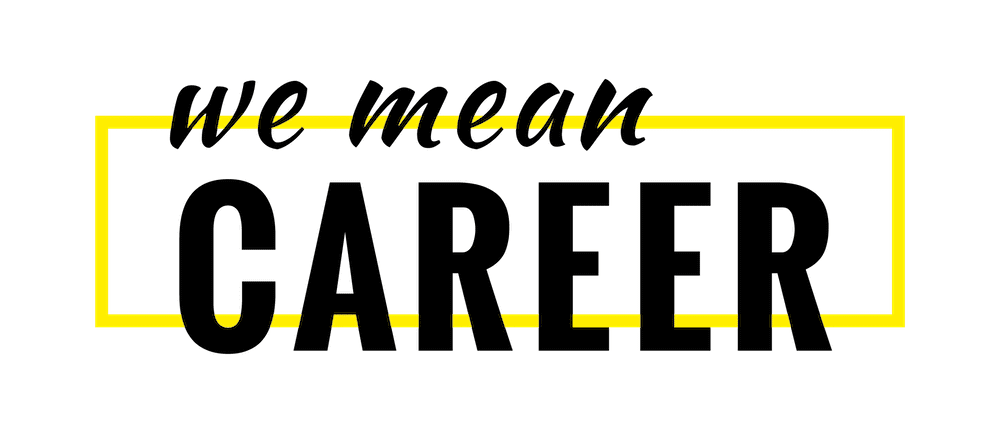
If you are applying to an entry-level position, it’s possible you actually have more experience than you think. It may not be in the form of prior work experience, but chances are, you’ve been exposed to the tasks of the jobs you are applying to in one way, shape, or form. How do I know this? Because I’ve been there.
When I first graduated from college, I thought I didn’t have any experience. But now that I’ve been in the working world for a few years and had a chance to lead the hiring process for a summer intern, I realize that fresh-out-of-college-me actually did have experience. I just didn’t know how to show it in a resume.
So let’s dive in. Here are four places recent college graduates can draw previous experience from to create a resume.
1.School Clubs/Organizations
If you participated in school clubs or organizations related to the jobs you are applying for, you can include them on your resume. (Bonus points if you held a leadership position and/or carried out tasks that demonstrate your capabilities)
Why this looks great:
When I was leading the hiring process of a summer intern, the HR coordinator sifted through resumes and sent along top candidates. I asked her how she chose these candidates and she said that one of the first things she did was remove applicants who didn’t at least prove their interest in the position on their resume.
What you can do:
- If you participated in a school club, school organization, or volunteer work related to the jobs you are applying for, you can list this under clubs and organizations on your resume. The trick is to add a bullet point that connects the club/organization to the role you are applying for.

See how I used a bullet point to show my interest in business? It’s important to do this because I can’t assume that the person reading my resume will know what Alpha Kappa Psi is or how it relates to the job I’m applying for.
- If you carried out tasks that demonstrate your capabilities, you can list this under previous experience even though it isn’t considered a previous job. Take a look at this example:

See how I was able to format my school organization experience similar to a previous work experience entry? This shows my interest in marketing and demonstrates that I’ve successfully completed a marketing campaign.
2. Related coursework
I remember hearing that elective classes were important for your resume. I never included them in my resume because I didn’t know how to show it. Then when I was looking at resumes to hire a summer intern, I realized what was missing — an explanation of how the coursework related to the internship they were applying for. Hear me out… All of the resumes that included related coursework simply had a list of course titles. But the problem was that some course titles didn’t actually seem like they correlated to the type of intern we were hiring for.
Why this looks great:
If you don’t have previous work experience doing something, showing related coursework is a great way to show your interest, demonstrate what you’ve learned, and how it relates to the job you are applying for.
What you can do:
Format it in a way that’s similar to previous experience.

By formatting this social media marketing course, in the same way, I would format previous work experience, I show the hiring manager and/or recruiter exactly why I am interested in the position, how it relates to the job and demonstrates what I’ve learned. Whereas if I had only listed out the name of the course, they would only see that I am interested in social media marketing.
3. Service industry jobs
Just because a service industry job isn’t directly related to a job you are applying for doesn’t mean you have to leave it off of your resume. You can put service industry jobs on your resume if you make it relevant to the job you are applying to. For example, let’s say you’re applying to a social media community coordinator role. Part of being a community coordinator is providing customer service online. So a service industry job is actually relevant! You just have to spell it out for the hiring manager and/or recruiter.
Why it looks great on your resume:
A service industry job may not be directly related to the job you are applying for. But you can show transferable soft skills.
What you can do:
Previous service industry jobs can go under previous experience. For example, take a look at the image below to see how I demonstrated strong customer service experience.

4. Skills/certifications
Even though I wouldn’t recommend laying out skills or certifications in the same format as previous work experience, having a section on your resume that points out skills and/or certifications you have is a great way to catch a recruiter or hiring manager’s eyes.
Why this is great on your resume:
It’s a perfect way to connect the dots between your experience and the job you are applying for.
What you can do:

Create a separate section dedicated to listing out your skills and/or certifications. This will catch the eyes of the person scanning your resume. Just be sure that the work experience you have on your resume demonstrates the skills you’ve listed out.
Look at the skills section image. The skills highlighted here are things that the job posting calls for so it will stop a recruiter or hiring manager from skipping past my resume. Then my previous experience on the resume would need to demonstrate that I have these hard and soft skills.
Now that you know it’s possible to create a resume without previous office work experience or internships, it’s time to create your resume. Don’t worry too much about not being able to fill up a resume template. If you take a look at resume templates, you’ll notice that there is only room on one piece of paper for a few entries anyway. Take a look at the school clubs/organizations, volunteer work, projects, related classes, previous internships, and service industry jobs you’ve participated in and you’ll be surprised at how much experience you actually have to put on your resume. To help you get started here are a couple of resources:
About Laurie Nilo
Laurie Nilo is the founder of Post College Journey, a lifestyle blog dedicated to helping recent college graduates find that great, first marketing job. After taking a year to find and land her first job (that required a four-year degree), she realized that self-discovery plays a huge role in the post-college job hunt because it is the foundation of building a strong career. Since then, she’s been devoted to helping college graduates navigate the transition from full-time schooling to full-time adulting starting with a career in marketing. So whether you are a college senior freaking out about life after college or a just-out-of-college graduate looking for an entry-level marketing job, she’d love to work with you to get you confidently and effectively through the job searching process. Check out the Post College Journey here.



